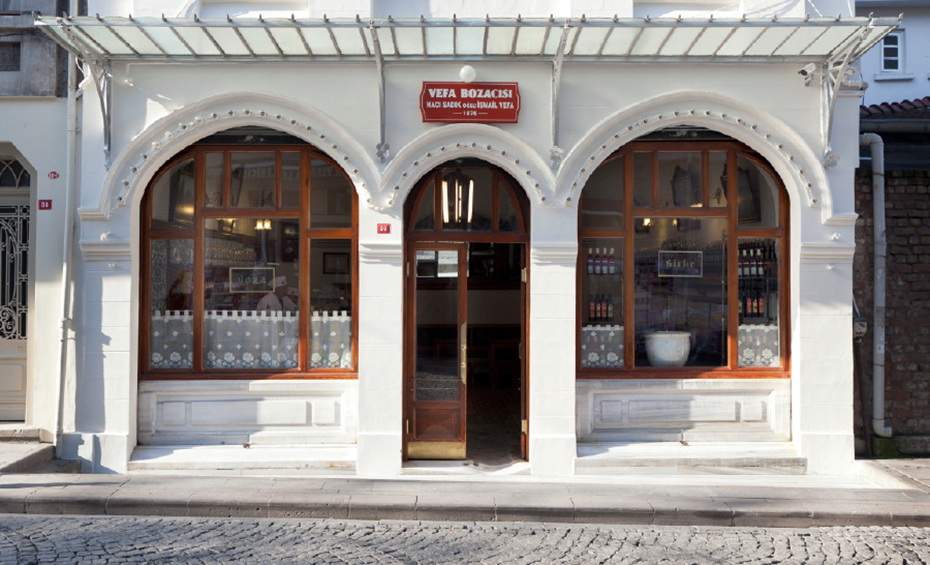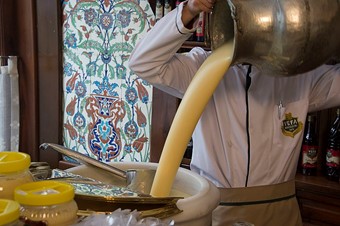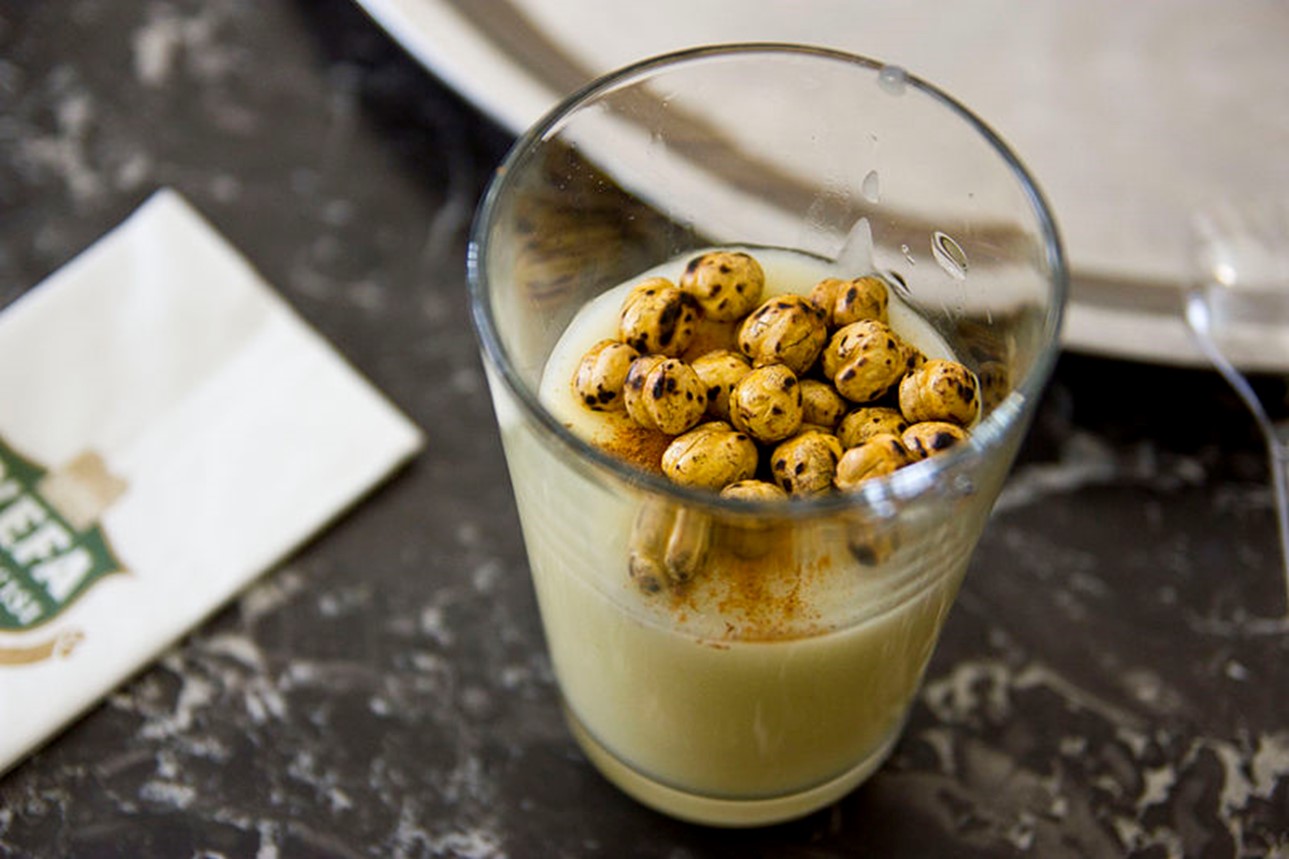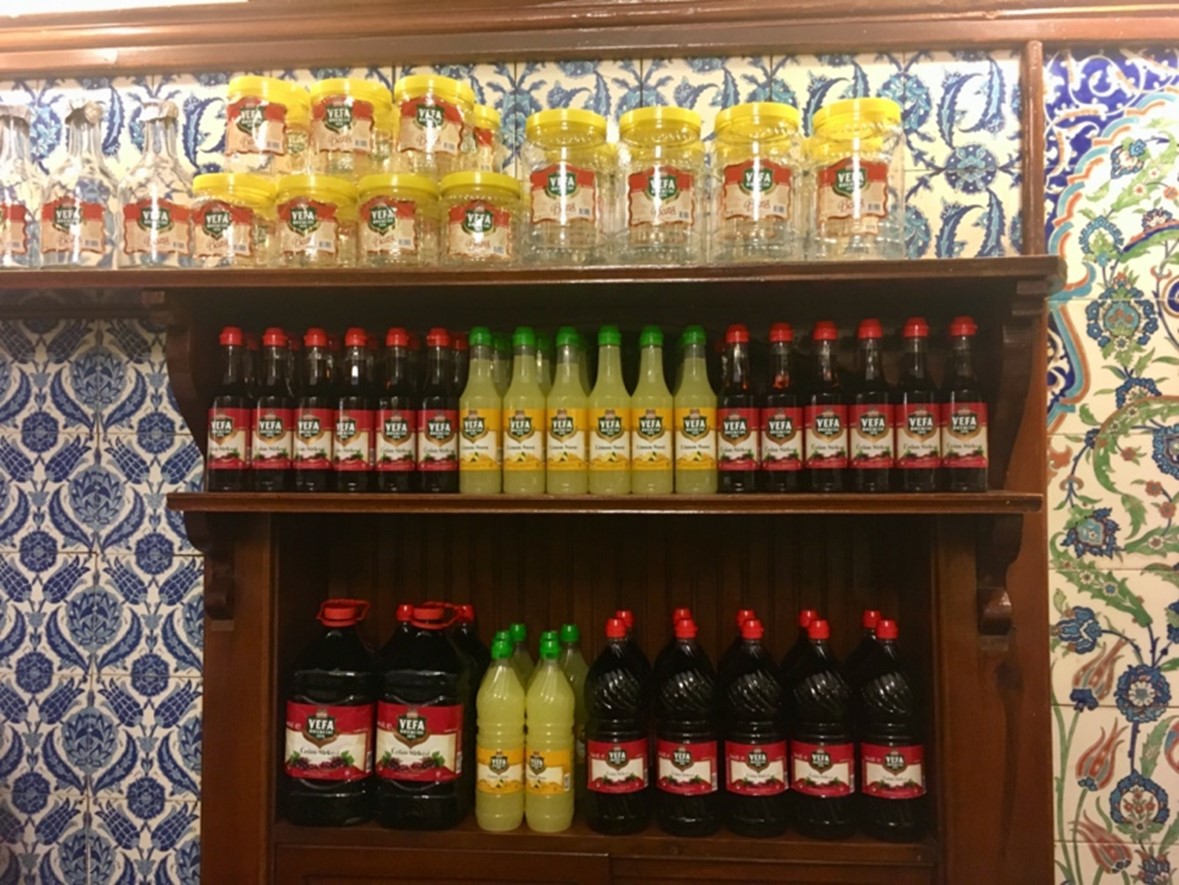POST
December 09 , 2020
Vefa Boza, a Turkish Winter Tradition
The story behind a favorite Turkish winter beverage, and the Istanbul shop that has been selling 'boza' for over a century.

Drinking a glass of thick fermented millet might sound unusual to you, but really, what won’t we humans try and ferment? The malt beverage called ‘boza’ is part of an ancient tradition going back millennia to Anatolia and Mesopotamia. Tangy and sweet, thick and cool, you can either drink it down like a smoothie or scoop it into your mouth similar to a pudding. By the 10th century, boza was commonly enjoyed among Turkic tribes of central Asia. Like so many other culinary traditions that spread during the Ottoman empire, you can find boza-drinking throughout other Balkan and Eastern European countries like Albania, Bulgaria, Macedonia, Serbia, Montenegro, Kosovo, Kazakhstan, Romania etc.
The drink was banned by some sultans in Ottoman times due to its alcoholic content, albeit not very high. The janissary infantry who protected the sultan were big drinkers of boza, perhaps due to its beneficial warming and strengthening properties. The boza-making process starts by soaking and boiling semolina millet (or other grains according to the place), then allowing it to ferment for a certain time period. This sequence allows the grain to release its nutrients and minerals, producing a high-calorie fuel with a pleasant, slightly nutty taste.
An updated version of the drink was developed in the 19th century. In 1870, a man named Hacı Sadık Bey immigrated to Istanbul from Prizren, Albania. He began going around the streets of the prestigious Vefa district to sell his own version of boza out of copper jugs carried on his shoulders. Soon, his own slightly thicker and sweeter recipe became the favorite of palace courtiers, aristocratic families and bureaucrats of the time. In September 1876, Hacı Sadık Bey opened ‘Vefa Bozacısı’ and continued to produce the drink and protect its unique consistency and taste all by himself for many years. Eventually he trained his son, İsmail Hakkı Vefa, to make the recipe and take over the business. Today, the Vefa boza production continues with the 4th generation, preserving the traditional taste that has been loved by famous figures and ordinary Istanbulites for over a century. Atatürk, the father of the Turkish Republic and hero of modern Turkey, also loved boza. The glass he drank from on a visit to Vefa Bozacısı in 1937 is still on display in a glass case on the wall.

The historic ‘Vefa Bozacısı’ is set in the Fatih neighborhood of Istanbul, less than a mile from the busy harbor of Eminönü and surrounded by historic mosques, like the 16th-century Süleymaniye Mosque, where you can admire beautiful views over the Golden Horn. Step off the cold streets into the nostalgic little shop of wood-paneled counters, mirrored benches and old-school tile. You’ll find men in white uniforms overseeing a counter filled with rows of prepared boza glasses for grab and go service.

Take a glass and step over to a little antique table, or choose a paper cup for the road. You might be surprised by the tart taste at first, but it soon becomes addictive and fills your tummy with a satisfying helping of carbs. Traditionally, the drink is topped with a generous sprinkle of cinnamon and crunchy leblebi (roasted chickpeas). Get your bag of roasted chickpeas from the shop right across the street and add them to your boza for extra texture and nuttiness.

Boza isn’t a hot beverage, so you may be wondering why it’s so popular in the winter… Because the drink is fermented, it would traditionally spoil if not kept in a cool place, so boza makers typically didn’t sell it during the hot summer months. Other products you could pick up throughout the year include bottles of pomegranate molasses, a popular Turkish condiment, fresh lemonade or the Ottoman Sherbet drink.

While the shouts of boza sellers used to be more commonplace in Turkey, today you can also find the drink in cafes and bottled up in marketplace displays during the winter. But if you are in Istanbul, you really must stop by and try a glass of Vefa Boza in this charming historic shop!